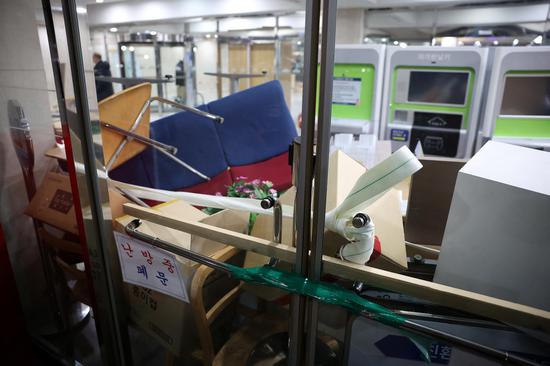A newly released blue book underscores the critical role of economic cooperation between China and Japan in bolstering bilateral relations and driving economic growth for both nations.
The book, titled "Blue Book of Japanese Economy: Annual Report on Japanese Economy and Sino-Japanese Economic and Trade Relations (2024)," was jointly released by the Institute of Japanese Studies at the Chinese Academy of Social Sciences and the Social Sciences Academic Press on Dec 12.
At the release conference, Lyu Kejian, senior advisor at the Chinese Association for Japanese Economic Studies, emphasized that China and Japan have developed a mutually beneficial, complementary, and win-win relationship in trade and technological cooperation. He noted that the trade volume between the two countries has remained above $300 billion for many years.
The book highlights the significance of enhancing Sino-Japanese economic cooperation, noting its importance for Japan's economic recovery and China's high-quality economic development.
Expanding exports has been identified as a key strategy for Japan's economic rebound, and China is a crucial trade and investment partner of Japan, the book pointed out. In 2023, Japan's exports to China and imports from China accounted for 17.6 percent and 22.2 percent of Japan's total export and import volumes, respectively.
Lyu also highlighted the substantial potential for complementary collaboration between Chinese and Japanese companies in sectors such as healthcare, silver economy and cross-border e-commerce.
"China's elderly population, those aged 65 and above, has surpassed 216 million, making up 15.4 percent of the total population. This presents both a challenge and a vast market potential for the development of the silver economy," Lyu noted.
"Japan has extensive experience in this field, including investment and management in healthcare and elderly care industries, talent training, and project operations. Therefore, both sides can leverage their strengths to deepen cooperation in this area."
The White Paper on the Chinese Economy and Japanese Companies 2024 issued by the Japanese Chamber of Commerce and Industry in China in July, revealed that 56 percent of Japanese companies in China planned to expand or maintain their investment scale, a three percentage increase from the previous year. Additionally, 54 percent of these companies expressed satisfaction with the business environment in China.
Lyu said that recent surveys indicate that over half of respondents in both countries view the other as a vital economic and trade partner, highlighting that economic cooperation remains a cornerstone of Sino-Japanese relations.
The blue book further notes that in the context of increasing global economic pressures and the persistence of unilateralism and trade protectionism, the importance of regional supply chains has become more pronounced. The signing and implementation of the Regional Comprehensive Economic Partnership have opened up broader avenues for Sino-Japanese economic cooperation. Both countries can fully utilize regional cooperation platforms like the RCEP to enhance the quality and level of economic cooperation, and contribute to global economic recovery.


















































 京公网安备 11010202009201号
京公网安备 11010202009201号